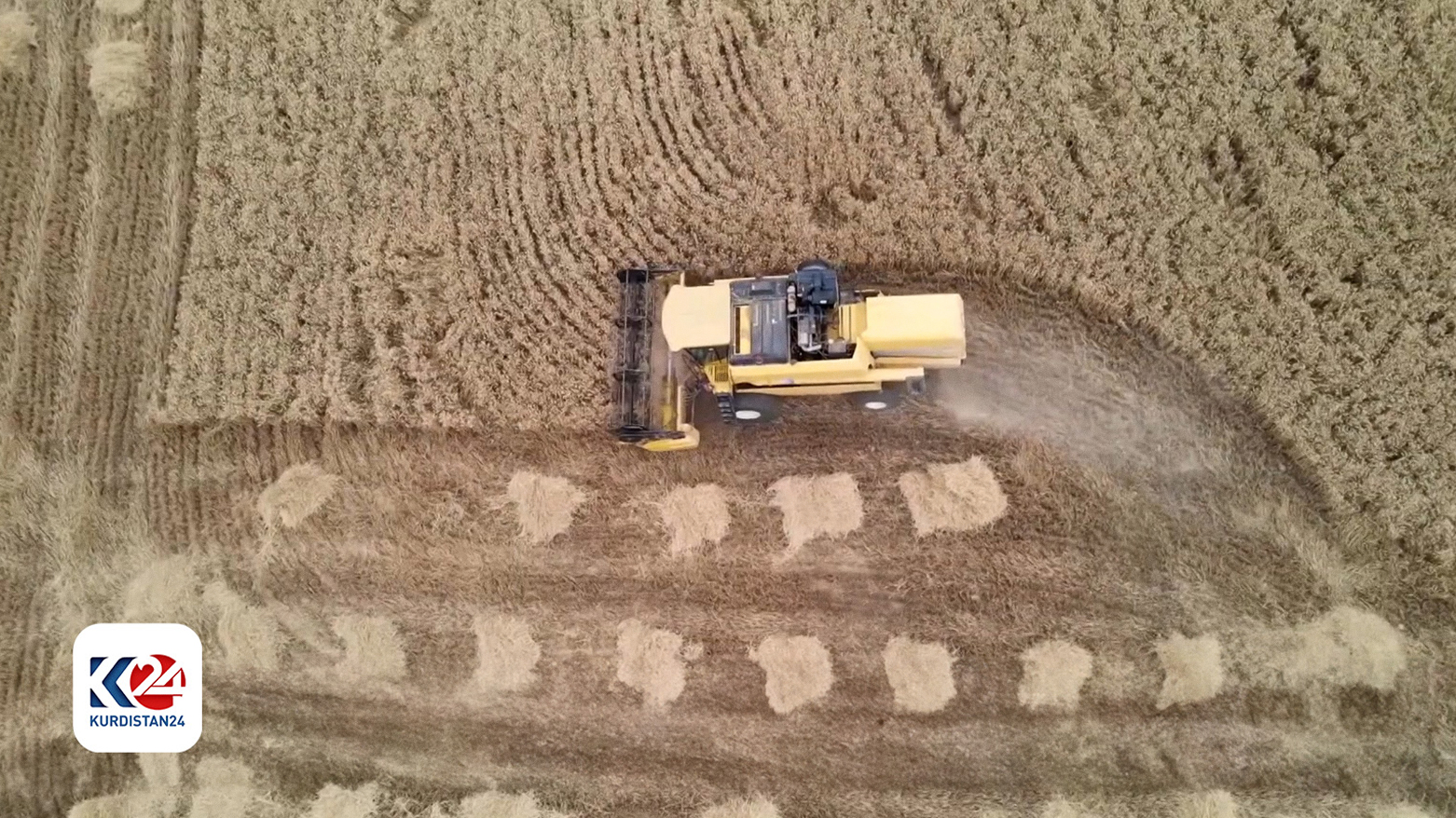Heavey rainfall causes drop in wheat production in Raparin
Despite favorable rainfall this year, the yield has not met farmers' expectations, predicting a lower income from wheat.

Erbil (Kurdistan24) – The wheat harvest season has commenced in the Bitwen plain and Raparin Independent Administration, but this year's production has seen a notable decrease of 20 to 25 percent compared to last year.
Despite favorable rainfall this year, the yield has not met farmers' expectations, predicting a lower income from wheat.
Rizgar Mohammed, a local farmer, spoke to Kurdistan24 correspondent Aras Amin and remarked, "Although we had significant rainfall, there was a crucial period when the wheat needed rain, but it was dry."
The agricultural lands of the Raparin Independent Administration, characterized by their flat and waterlogged nature, received over 850 mm of rain this year. This heavy rainfall has contributed to the reduced wheat production.
Khalid Ahmad, Director General of Agriculture in the Raparin Independent Administration, explained, "For the agricultural lands of Bitwen and Pishdar, a relatively dry year is better than heavy rains because the lands are flat and become waterlogged with heavy rainfall."
The region boasts 158,000 dunams of arable land, predominantly planted with wheat. Last year, the wheat yield was 60,000 tons, but this year it is expected to drop to between 40,000 and 50,000 tons.

